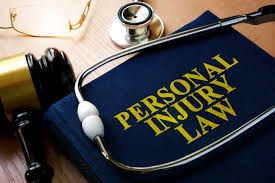Personal Injury Litigation in Florida
Overview
Personal injury litigation in Florida refers to the legal process through which individuals seek compensation for harm caused by negligence, recklessness, or intentional actions of another party. These cases can stem from car accidents, motorcycle accidents, slip and falls, medical malpractice, dog bites, defective products, and more.
Legal Basis
Florida’s personal injury claims are based on negligence law, which requires the plaintiff to prove the following elements:
- Duty of care – The defendant owed a duty to act reasonably to avoid causing harm.
- Breach of duty – The defendant failed to meet that duty.
- Causation – The breach directly caused the injury.
- Damages – The plaintiff suffered actual harm or losses.
Comparative Negligence Rule
Florida follows a modified comparative negligence system as of March 24, 2023, under House Bill 837. This means:
- If the plaintiff is found to be more than 50% at fault, they cannot recover damages.
- If they are 50% or less at fault, their compensation is reduced by their percentage of fault.
Statute of Limitations
As of the 2023 legislative update:
- The statute of limitations for most personal injury cases is 2 years from the date of the injury (previously 4 years).
- There are exceptions for cases involving minors, medical malpractice, or discovery of harm later.
Damages in Personal Injury Cases
In Florida, victims may be entitled to two main types of damages:
- Economic Damages – medical bills, lost wages, rehabilitation costs.
- Non-Economic Damages – pain and suffering, emotional distress, loss of enjoyment of life.
Punitive damages are rare but may be awarded in cases involving intentional misconduct or gross negligence.
Pre-Litigation & Settlement
Most cases begin with correspondence with the at fault drivers insurance company. In the case of a UM/UIM claim (Uninsured/Underinsured), correspondence would be with your own insurance company. During your course of medical treatment, bills and records will be sent to the insurance adjuster to continue evaluating your potential damages. Either after your course of treatment, sometimes even before, a demand letter and attempts to negotiate a settlement will then begin. Many claims are resolved out of court, but if no agreement is reached, a lawsuit may be filed. Florida courts also encourage mediation before going to trial.
Important Considerations
- Florida is a no-fault state for auto accidents, meaning each driver's insurance pays their own medical bills under Personal Injury Protection (PIP)—regardless of fault—up to $10,000, unless certain thresholds are met that allow for a traditional personal injury claim.
- Medical malpractice claims require a pre-suit investigation and expert affidavit under Florida law.
- Personal injury lawyers typically work on a contingency fee basis—they only get paid if you win.
Legal Representation
Having a knowledgeable Florida personal injury attorney is critical due to the complex and evolving nature of state laws as well as recognizing all of the potential damages by insuring that appropriate medical treatment is given. Head injuries and proper medical attention are often overlooked especially by inexperience lawyers and even treating physicians. An experienced lawyer can help gather evidence, file documents, negotiate with insurers, and represent you in court in an effort to obtain the compensation you deserve.


